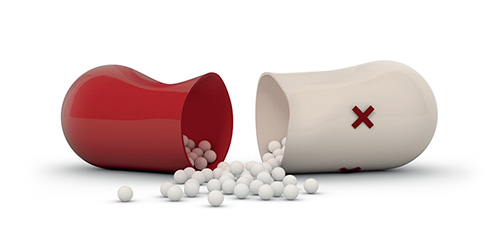Leaflets to discuss with patients
 Using patient
leaflets interactively in consultations is the best way to support effective discussions and maintain patient satisfaction.
Using patient
leaflets interactively in consultations is the best way to support effective discussions and maintain patient satisfaction.
Version 1.0, November 2021.
UTI Leaflet - Women Under 65 Years
UTI Leaflet - Women Under 65 - web version
Treating your urinary tract infection (UTI)
For women under 65 years with suspected lower urinary tract infections (UTIs) or lower recurrent UTIs (cystitis or urethritis)
Version 24.0. Published: November 2024. Revision date: November 2027
Developed with healthcare professionals, patients and professional medical bodies. TARGET is operated by the UK Health Security Agency
Possible urinary signs and symptoms
Key signs and symptoms
- Dysuria: Burning pain when peeing
- New nocturia: Needing to pee in the night
- Cloudy urine: Pee looks cloudy
Other signs and symptoms to consider
- Frequency: Peeing more often than usual
- Urgency: Feeling the need to pee immediately
- Haematuria: Blood in your urine
- Suprapubic pain: Pain in your lower tummy
Other things to consider
Recent sex
- Inflammation due to sex can feel similar to the symptoms of a UTI
- Some sexually transmitted infections (STIs) can have symptoms similar to those of a UTI
Changes during menopause
- Some changes during the menopause can have symptoms similar to those of a UTI
Self-care to help yourself get better more quickly
- Drink enough fluids to stop you feeling thirsty. Aim to drink 6 to 8 glasses a day
- Avoid too much alcohol, fizzy drink or caffeine that can irritate your bladder
- Take paracetamol or ibuprofen as advised for pain relief, if you have had no previous side effects
- You could try taking cranberry capsules or cystitis sachets. Some women find these effective. The evidence to support their use is inconclusive.
- Consider the risk factors in the ‘Options to help prevent UTI’ column to reduce future UTIs
The outcome and recommended care
If you are not pregnant
If you have none, or only one of, dysuria, new nocturia or cloudy urine, or you have a vaginal discharge (on its own or with any of the above):
The outcome
- a UTI is much less likely;
- you may need a urine test to check for a UTI
- antibiotics are less likely to help; and
- the infection will usually last 5 to 7 days
Recommended care
- Self-care and pain relief
- symptoms may get better on their own
- Delayed or backup prescription with self-care and pain relief.
Start antibiotics if your symptoms:- get worse, or do not get a little better with self-care within 48 hours
If you have 2 or more of dysuria, new nocturia, cloudy urine or bacteria in your urine and no vaginal discharge:
The outcome
- a UTI is more likely and antibiotics should help
- you should start to improve within 48 hours
- symptoms usually last 3 days
Recommended care
- Immediate treatment with antibiotics, plus self-care
- If your symptoms are mild, start delayed or backup treatment with antibiotics, plus self-care
If you are pregnant
The outcome
Always ask for a urine culture test if suspected UTI
Recommended care
Immediate treatment with antibiotics, plus self-care
Options to help prevent a UTI
It may help you to consider the following risk factors:
- Stop bacteria spreading from your bowel into your bladder. Wipe from front (vagina) to back (bottom) after using the toilet
- Avoid waiting to go to the toilet. Pee as soon as you need to
- Go for a pee after having sex to flush out any bacteria that may be near the opening to the urethra
- Wash the external vagina area with water before and after sex to wash away any bacteria that may be near the opening to the urethra
- Drink enough fluids to make sure you pee regularly throughout the day, especially during hot weather
If you have repeated UTIs, discuss this with a healthcare professional. The following may help.
- There is good evidence to show that vaginal hormonal treatment may help after the menopause
- You could try taking cranberry products, D-mannose or probiotics. Some women find these effective. The evidence to support their use is inconclusive
Antibiotic resistance
- Antibiotics can be lifesaving. But they are not always needed for urinary symptoms
- Taking any antibiotics can make bacteria that live inside your body more resistant. This means that antibiotics may not work when you really need them
- This may make future UTIs more difficult to treat
- Common side effects of taking antibiotics include thrush, rashes, nausea, vomiting and diarrhoea. Get medical advice if you are worried
- Keep antibiotics working – only take them when advised by a health professional. This way they are more likely to work for a future UTI
Types of urinary tract infection
UTIs are caused by bacteria getting into your urethra or bladder, usually from your gut. Infections may occur in different parts of the urinary tract.

When should you get help?
Contact your GP practice or NHS 111
The following symptoms are possible signs of serious infection and should be assessed urgently. Phone for advice if you are not sure how urgent the symptoms are.
- You have shivering, chills and muscle pain
- You feel confused, or are very drowsy
- You have not been for a pee all day
- You are vomiting
- You see blood in your urine
- Your temperature is above 38ºC or less than 36ºC
- You have kidney pain in your back just under the ribs
- Your symptoms get worse
- Your symptoms are not starting to improve within 48 hours of taking antibiotics

For any leaflet queries please contact us:
TARGETantibiotics@ukhsa.gov.uk